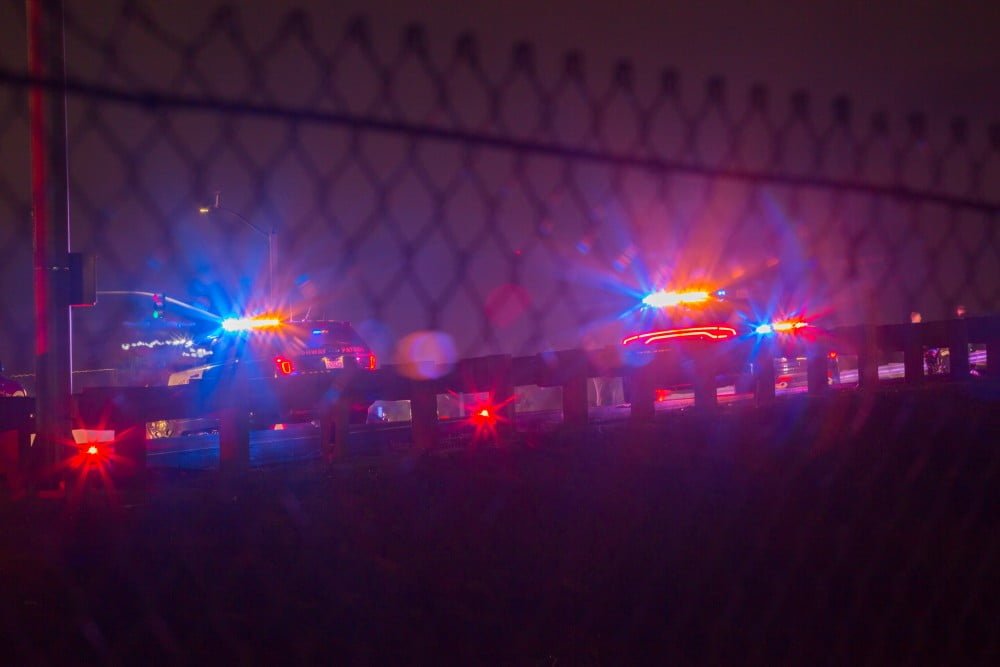DUI checkpoints might be legal in South Carolina – if the police comply with the Fourth Amendment requirements found in SC and US Supreme Court opinions.
In this article, we will discuss state and federal law on the constitutionality of DUI checkpoints in SC, including:
- When a DUI checkpoint is unreasonable under the Fourth Amendment or state constitutions,
- South Carolina appellate opinions on DUI checkpoints,
- US Supreme Court opinions on DUI checkpoints, and
- What you should do if you are stopped at a roadblock.
Checkpoints for Driving Under the Influence in SC
You may be able to challenge the constitutionality of a DUI roadblock in court.
If the checkpoint did not comply with the Fourth Amendment, your charges – driving under the influence, drug charges, or other criminal charges that resulted from the illegal search and seizure – could be dismissed when key evidence is suppressed under the exclusionary rule.
Do DUI Checkpoints Violate the Fourth Amendment?
When police force you to stop your vehicle at a roadblock or DUI checkpoint, that is a “seizure” under the Fourth Amendment.
When police search your vehicle after forcing you to stop at a roadblock, that is a “search” for purposes of the Fourth Amendment. If you are arrested, that is another “seizure” for purposes of the Fourth Amendment.
That doesn’t necessarily make the search or seizure illegal or unconstitutional – the Fourth Amendment doesn’t prohibit searches or seizures but requires that they be reasonable.
What is Reasonable?
So, what is reasonable?
“Reasonable,” for purposes of the Fourth Amendment, is whatever the US Supreme Court says. If the US Supreme Court says a particular procedure is reasonable, we must also consider the state courts’ opinions interpreting the state constitution’s requirement for reasonableness in searches and seizures.
In South Carolina, a DUI checkpoint is considered reasonable when:
- There is a reasonable basis for the location of the roadblock that is related to traffic safety – general crime enforcement is not a reasonable basis for a roadblock, and police must keep records to show that the site’s location was supported by statistics,
- There must be a plan for the checkpoint that includes the reason for the location, the justification for the checkpoint, and the procedures that will be followed during the event,
- Vehicles cannot be stopped randomly – this would give the police the discretion to stop only the vehicles they subjectively decide should be stopped (drivers of a particular race or gender, for example), so all vehicles must be stopped or there must be a non-random basis like every tenth vehicle,
- A supervisor must be present to oversee the operations,
- The duration of the stops must be reasonably brief unless there is a reasonable suspicion of criminal activity,
- The area of the checkpoint should be well-lit, identifiable as a law enforcement checkpoint, and announced by signs warning motorists that they are approaching a checkpoint,
- The location of the roadblock must be announced publicly before the event, and
- It must be documented that the roadblock is in the public’s interest.
SC and US Supreme Court Law on DUI Checkpoints
US Supreme Court law on DUI checkpoints includes the following landmark cases:
- Brown v. Texas – set the standard for a “non-arrest seizure” that falls short of a traditional arrest – the courts must balance “the public interest and the individual’s right to personal security free from arbitrary interference by law officers.”
- Delaware v. Prouse – “spot checks” where law enforcement pulls over random vehicles are unconstitutional,
- Michigan v. Sitz – DUI checkpoints – specifically to catch drunk drivers – are constitutional because driving under the influence is a serious public concern
- Indianapolis v. Edwards – roadblocks imposed for “general crime control” including searching for narcotics, are unconstitutional.
South Carolina law allows DUI checkpoints if they comply with the US Supreme Court’s decisions and comply with reasonableness factors listed above.
In State v. Groome, for example, the SC Supreme Court found that a roadblock in South Carolina was unconstitutional because its primary purpose was generalized crime control and narcotics detection (the checkpoint was set up and operated by a crime suppression unit with narcotics officers and a K-9 present) and because the state did not have a “plan, procedures, or duration of the roadblock, nor was any evidence of a protocol introduced.”
What Should You Do if You Are Stopped at a Roadblock?
If you are stopped at a roadblock or DUI checkpoint in South Carolina, you should:
- Stay calm,
- Show your driver’s license, proof of insurance, and registration to the officer upon request,
- Step out of the vehicle if you are asked to, and
- Politely refuse field sobriety tests or requests to search your vehicle.
Police do not need a warrant to search your vehicle if they believe they have probable cause, and they can ask you to step out of the vehicle without a warrant, but you have the right to refuse to provide them with evidence against yourself including roadside field sobriety tests, breathalyzers (but there may be consequences for refusing a breathalyzer, such as suspension of your driver’s license), or consent to search your vehicle.
Questions About DUI Checkpoints in SC?
If you were charged with a crime, including a drug crime or driving under the influence/ DUI, after being stopped at a roadblock in SC, contact your criminal defense attorney immediately to discuss your options.
Your lawyer may be able to get the evidence in your case thrown out of court if the police did not comply with the requirements for DUI checkpoints in SC, and you may have defenses that you are unaware of.
Contact us through our website using this form or call 843-607-9800 to speak with attorney Susan Williams today.



